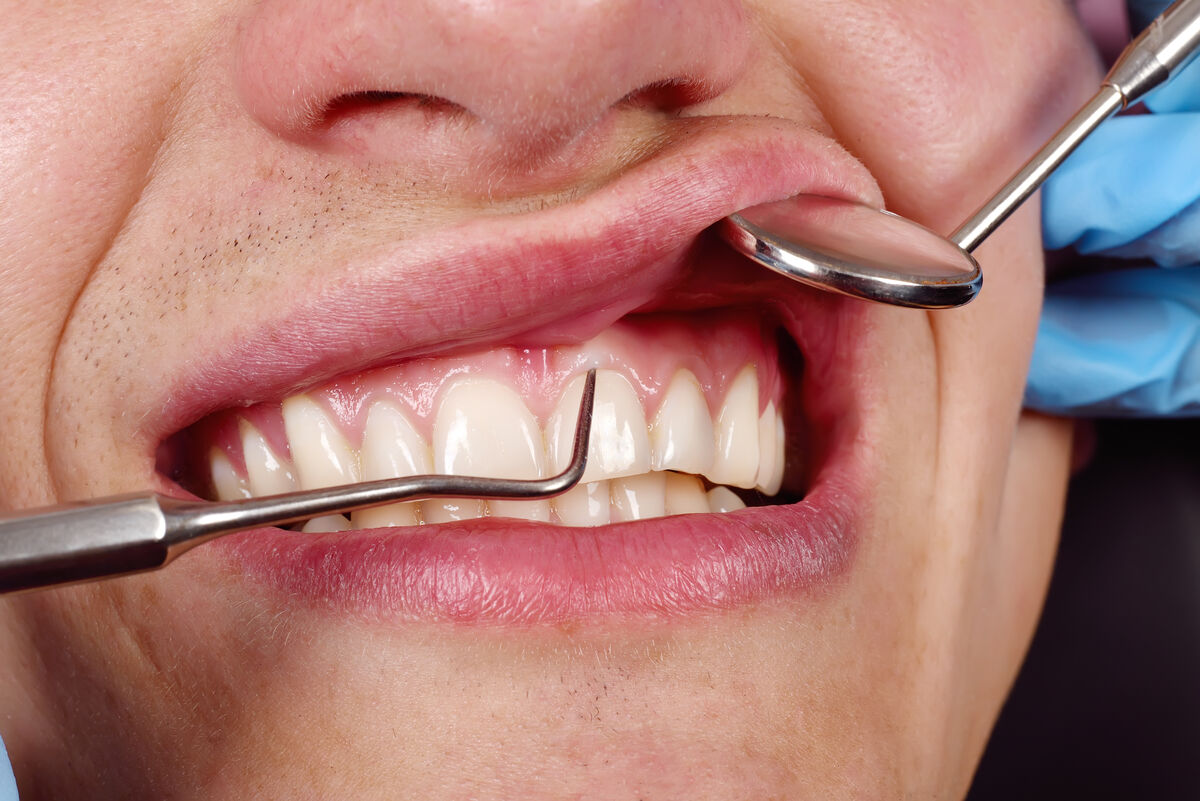Contents

Bleeding Gums: What Are the Warning Signs and How to React?
Seeing blood in the sink after brushing or flossing can be alarming. While it's a common issue, bleeding gums are never normal. They are often the first and most obvious warning sign of underlying gum disease. This guide will help you understand why your gums are bleeding, what it means for your health, and the steps you need to take to address it.
Why Healthy Gums Don't Bleed
Healthy gums are firm, pale pink, and fit snugly around your teeth. They are resilient and should not bleed from the gentle pressure of daily brushing and flossing. Bleeding is a sign of inflammation, which is your body's response to an irritant—in this case, bacterial plaque.
The Primary Cause of Bleeding Gums: Gingivitis
The most common cause of bleeding gums is gingivitis, the earliest and mildest form of gum disease. It occurs when plaque, a sticky film of bacteria, builds up on the teeth along the gumline. If this plaque is not removed by daily brushing and flossing, it produces toxins that irritate the gum tissue, causing inflammation. Inflamed gums become red, swollen, and prone to bleeding.
The good news is that gingivitis is completely reversible with a return to excellent oral hygiene and a professional dental cleaning.
Don't Stop Brushing!
A common mistake is to stop brushing or flossing an area that bleeds, fearing further irritation. This is the opposite of what you should do. Gentle but thorough cleaning is necessary to remove the bacterial plaque that is causing the inflammation.
Other Common Causes and Risk Factors
While gingivitis is the primary culprit, other factors can contribute to bleeding gums:
- Aggressive Brushing: Using a hard-bristled toothbrush or brushing too vigorously can traumatize the gum tissue.
- Hormonal Changes: Pregnancy, puberty, and menopause can make gums more sensitive and prone to inflammation (e.g., "pregnancy gingivitis").
- Medications: Blood thinners (anticoagulants) and certain blood pressure medications can increase the tendency to bleed.
- Underlying Medical Conditions: Bleeding disorders, vitamin C or K deficiencies, and uncontrolled diabetes can all manifest with bleeding gums.
- New Flossing Routine: If you've just started flossing, some minor bleeding for the first week is common as your gums adjust.
What to Do if Your Gums Bleed: An Action Plan
If you notice your gums are bleeding regularly, it's time to take action:
- Schedule a Dental Appointment: This is the most important step. A dentist or hygienist can diagnose the cause, perform a professional cleaning to remove plaque and tartar, and give you personalized advice.
- Re-evaluate Your Oral Hygiene: Ensure you are brushing gently for two minutes, twice a day, with a soft-bristled toothbrush. Crucially, you must clean between your teeth daily with dental floss or interdental brushes.
- Use a Therapeutic Mouthwash: An antiseptic or anti-gingivitis mouthwash can help reduce bacteria in the short term, but it is not a substitute for mechanical cleaning (brushing and flossing).
- Eat a Balanced Diet: A diet rich in vitamins and minerals, especially vitamin C, supports gum health.
How to Prevent Gum Bleeding for Good
The key to preventing bleeding gums is a consistent and thorough oral hygiene routine:
- Brush and Floss Daily: Non-negotiable for removing plaque.
- Get Regular Professional Cleanings: A dental hygienist can remove hardened plaque (tartar) that you can't remove at home.
- Manage Risk Factors: Control diabetes, avoid tobacco, and eat a healthy diet.
Conclusion: Take Bleeding Gums Seriously
Bleeding gums are a clear sign from your body that your gums are inflamed and need attention. By responding promptly with improved home care and a visit to your dentist, you can reverse gingivitis and prevent it from progressing to the more severe and irreversible stage of periodontitis. Healthy gums are the foundation of a healthy smile, so don't ignore the warning signs.
FAQ: Your Top Questions About Bleeding Gums
Bleeding when you floss is a classic sign of gingivitis. The plaque buildup between your teeth is irritating your gums, causing them to become inflamed and bleed easily. While it might seem counterintuitive, the best thing you can do is continue to floss gently every day. The bleeding should decrease and stop within one to two weeks as your gums become healthier.
While gum disease is the most common cause, persistent bleeding gums can occasionally be a symptom of a systemic issue, such as a bleeding disorder, leukemia, or a severe vitamin deficiency. If your gums continue to bleed heavily despite excellent oral hygiene, it's important to see both your dentist and your primary care physician.
To stop immediate bleeding, you can apply gentle but firm pressure to the area with a clean piece of gauze. Rinsing with cold water can also help constrict the blood vessels. However, these are temporary fixes. The only way to stop the bleeding for good is to address the underlying cause, which is almost always plaque buildup that needs to be removed through consistent brushing and flossing.
